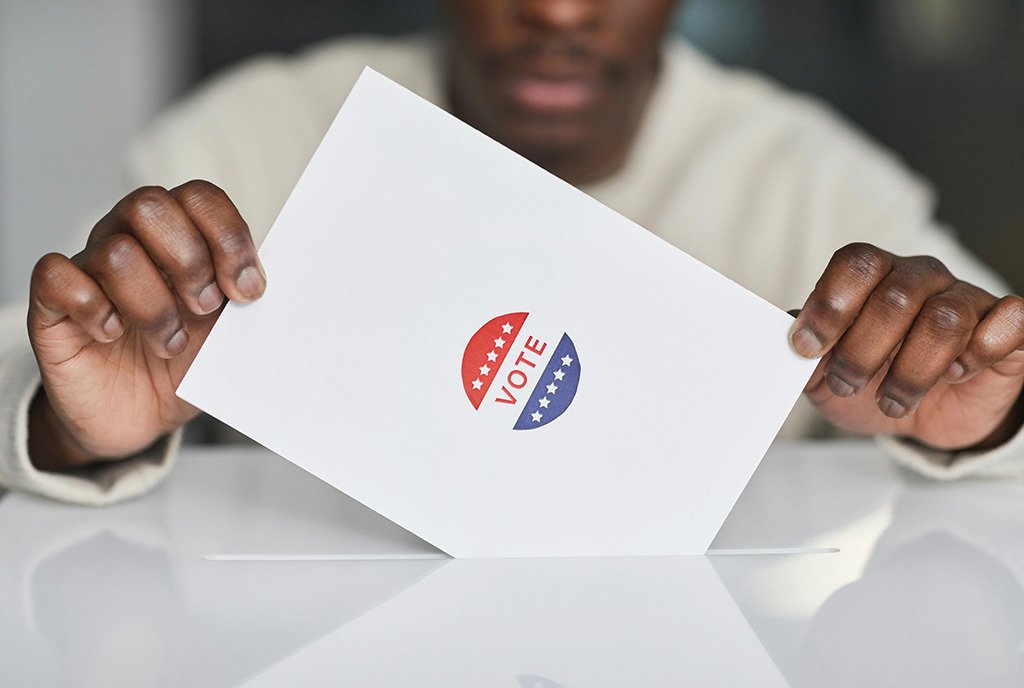
“This ruling should concern all citizens who are committed to protecting our democracy and ensuring that Black voters across the country have their rights upheld,” said Martina Tiku, the assistant general counsel to the NAACP, in a press briefing last month. The ruling she referenced was the Supreme Court of the United States (SCOTUS) decision in the Alexander v. South Carolina State Conference of the NAACP case.
“We are not backing down from the fight.”
As NPQ previously reported, the case was sent to the Supreme Court after South Carolina appealed a federal court’s decision that the state’s Republican-led legislature had engaged in racial gerrymandering when drawing the map. On May 23, SCOTUS issued its first decision in a racial gerrymandering case since the 2023 Allen v. Milligan case, reversing the district court’s ruling that the map was racially gerrymandered.
The 6–3 decision in Alexander v. South Carolina NAACP, which was split along ideological lines, was a blow to voting rights advocates in the state. In the wake of the decision, advocates have affirmed that they are committed to continuing to fight against any attempts to dilute the Black vote.
At a press briefing held in the wake of the SCOTUS decision, Dominik Whitehead, the vice president of campaigns for the NAACP, said the organization is committed to using every resource possible to ensure that Black South Carolinians make it to the polls this fall.
Brenda Murphy, the president of the South Carolina NAACP, echoed Whitehead’s resolve: “We are not backing down from the fight. The South Carolina State Conference of the NAACP will continue to utilize every resource we have at our disposal to ensure Black South Carolinians have an opportunity to make their voices heard in another pivotal election. This is what advocacy in action looks like.”
In a previous interview with NPQ, Murphy claimed that the Republican-led legislature had intentionally sought to dilute the Black vote in the state when it drew the map for the state’s First Congressional District. Under the newly drawn map, thousands of Black voters were pushed out of that district and moved to the Sixth District, which James Clyburn, a Black Democrat, had held for over three decades.
Murphy noted that when the map was drawn, communities were unnecessarily split. For instance, communities that use the same school boards and medical facilities no longer reside in the same voting district because of how the legislature drew the map.
This decision green-lights legislatures to hide behind partisanship when their ultimate goal is to dilute the Black vote.
Allen Chaney, the legal director at the ACLU of South Carolina, said that “no one has ever defended the map as a fair map.”
Sign up for our free newsletters
Subscribe to NPQ's newsletters to have our top stories delivered directly to your inbox.
By signing up, you agree to our privacy policy and terms of use, and to receive messages from NPQ and our partners.
Continuing to Challenge Injustice
Indeed, while SCOTUS ruled that the map was not racially gerrymandered, it did not deny that the map was politically gerrymandered. In his majority opinion, Samuel Alito contended that in drawing the map, the Republican-led legislature had partisan objectives rather than racial ones.
A previous case, Rucho v. Common Cause, decided that partisan gerrymandering cases present questions that are beyond the purview of federal courts. Alexander v. South Carolina NAACP was the first partisan gerrymandering case the Supreme Court heard since this ruling. Attorneys for the plaintiffs noted that Justice Elena Kagan signaled that this decision green-lights legislatures to hide behind partisanship when their ultimate goal is to dilute the Black vote.
In her dissent of the ruling, Kagan was joined by Justices Sonia Sotomayor and Ketanji Brown Jackson as she wrote, “The proper response to this case…is to respect the plausible—no, the more than plausible—findings of the district court that the state engaged in race-based districting. And to tell the state that it must redraw [the district] this time without targeting African-American citizens.”
Attorneys for the plaintiffs argued the case under the Fourteenth Amendment to the United States Constitution. They based their arguments on two claims:
-
- The First Congressional District was drawn as a racial gerrymander in violation of the Constitution
- The composition of the First Congressional District was drawn to intentionally minimize the voting power of Black voters in the district
The attorneys note that they are evaluating internally whether they will litigate further on the claim that the map was an intentional effort to minimize the Black vote.
In the meantime, not much will change for the upcoming election because a federal court had previously ruled that the state could use the map, claiming there was no other viable option. Still, advocates worry about the long-term consequences of the SCOTUS decision and how it might impact voters in other states.
Taiwan Scott, the sole individual plaintiff in the case and a member of the coastal African American Gullah Geechee community says that he is very disturbed by the ruling and it makes him feel as though his community does not matter. Nonetheless, he says he will continue to fight.
“Our voices should be heard. We won’t stop.” Scott said. “We will continue to move forward. We will continue to stay positive and challenge injustice.”










